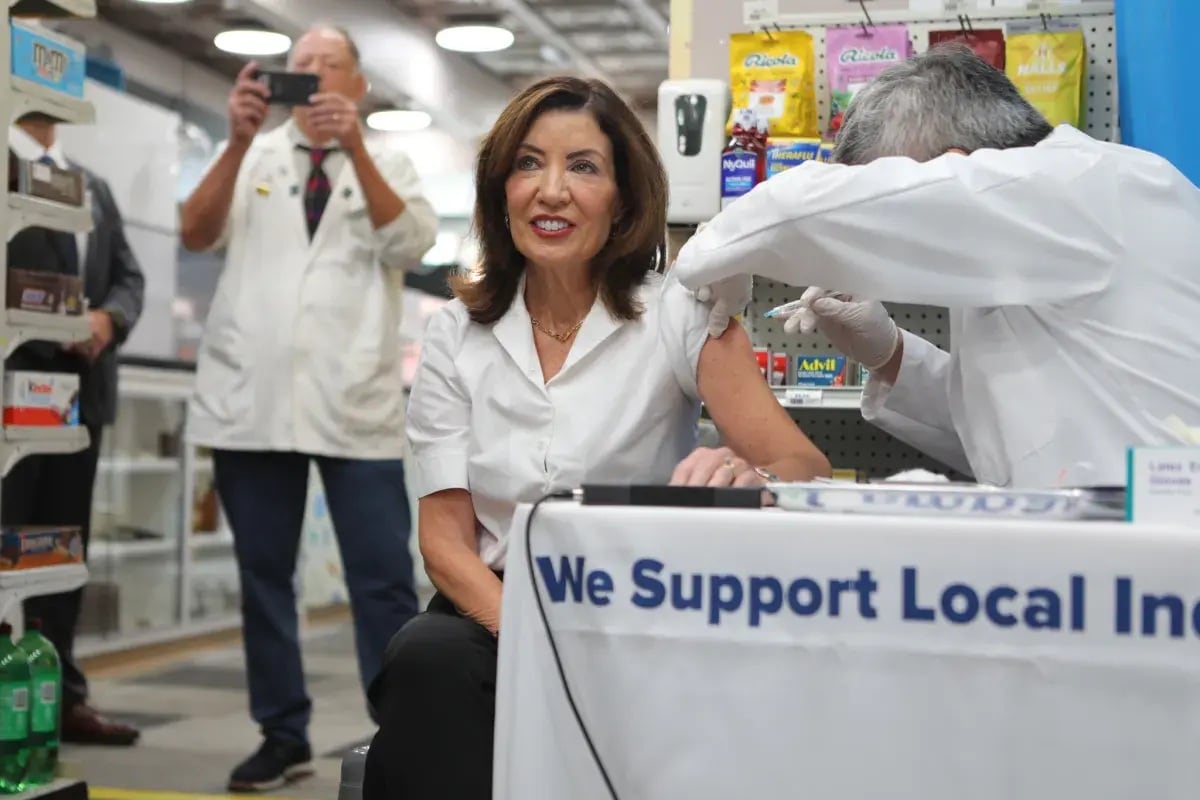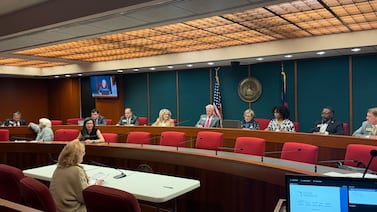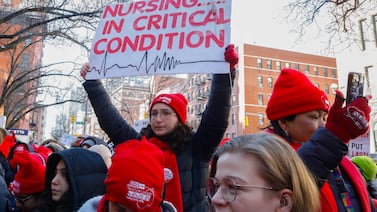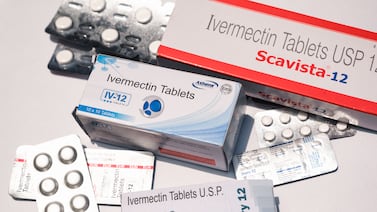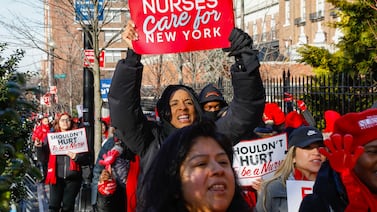This story was originally published by THE CITY. Sign up to get the latest New York City news delivered to you each morning. Public health, explained: Sign up to receive Healthbeat’s free New York City newsletter here.
We’re headed into cold and flu season and you want your shots, including an updated Covid booster. Where can a New Yorker go to get the jab?
After the Food and Drug Administration changed its regulations around the Covid vaccine this summer to limit access, New York state crafted a workaround to preserve people’s ability to get a booster. Nonetheless, confusion has reigned in pharmacies across New York City.
An executive order by Gov. Kathy Hochul technically allows pharmacies to administer the vaccine to anyone 3 years old and older. But the Centers for Disease Control and Prevention recently changed its guidelines around the Covid vaccine that further mixed messaging, creating a choose-your-own-adventure scenario for shot-seekers.
Here’s what to know now about finding (and paying for) the new Covid shots in New York City 2025.
Can I get a Covid booster in New York City, and where?
Yes, you can, but where you get it depends on a few factors.
At CVS, Walgreens, and independent pharmacies, the Covid vaccine is allowed to be administered, but availability and whether you will have to pay for it varies (more on this below).
Hochul’s Sept. 5 executive order allows pharmacies in the state to offer the Covid vaccine to those under 65 without an underlying health condition and without a prescription.
She did this in response to the FDA releasing the most restrictive Covid vaccine regulations since the shot’s inception. The federal policy said that only those 65 and older or people with an underlying condition are eligible to get the updated vaccine.
Hochul’s executive order suspends those federal rules until Oct. 5, and she may choose to extend it further.
Despite the governor’s order, availability of the vaccines is spotty in New York City. When THE CITY reached out to pharmacies across the five boroughs in recent days, many were not offering the shot, or were administering it only to certain populations.
At Esco Pharmacy in Hell’s Kitchen — where Hochul herself received the COVID booster last week — pharmacists are following FDA guidelines and not offering the vaccine to anyone between the ages of 18 and 65 who do not have a health condition.
“It is confusing to our staff and the patient, as well,” said Danny Dang, pharmacist at Esco, of the current guidelines. “We do see the benefits of the vaccination. I’ve seen a lot of patients who came to us for Covid treatment that could have been prevented by the vaccine if we had done it earlier.”
Dr. Marisa Donnelly, epidemiologist and author of the column “Your Local Epidemiologist New York,” explains that just because pharmacies are allowed to administer a vaccine doesn’t mean they will.
“There’s still, I think, a lot of internal policies that different pharmacy companies have,” Donnelly says. “They’re all allowed to give vaccines, but that doesn’t mean that they necessarily will. They can still go with their own guidelines and decide not to give a vaccine if they don’t want to. But they are allowed within the state.”
Who should get the booster?
Under the executive order from Hochul, everyone over 3 years old should be able to get the Covid shot. But, as stated above, the CDC and FDA says something else entirely, muddying the waters.
The New York City Health Department says it is especially important for the following groups of people to get the Covid booster:
- All adults ages 65 and older
- All children ages 6 to 23 months
- People who are pregnant or recently gave birth
- People of any age who have an underlying condition that increases their risk for severe Covid-19
- People at high risk of exposure, such as health care workers and people living or working in a nursing home or other congregate setting
- People living with someone with an underlying condition that increases their risk for severe Covid-19
- People who have never been vaccinated before
Dr. Bruce Y. Lee, a professor at the CUNY Graduate School of Public Health & Health Policy, recommends the shot for anyone whose last vaccine was over six months ago, since immunity starts to wane after four to six months.
“On top of that, the last set of vaccines were protected against an earlier variant,” Lee says. “Right now, the variants that are circulating are different from previous, so your protection is probably even lower against the current variants. So if you haven’t gotten a vaccine for at least six months or greater, then it’s a good idea to get the vaccine, especially headed into winter.”
What about shots for city kids?
All kids 3 years to 18 are eligible to be vaccinated in New York state – no prescription or underlying health condition needed. (Six- to 23-month-old kids are considered a high-risk population and so their eligibility for the vaccine was never under threat)
However, THE CITY found that availability for shots for young people is spotty. Some independent pharmacies that are offering the vaccine for adults just don’t have it available or stocked for kids.
Lauren Naturale, a Sunset Park mom, tried to get her 6-year-old daughter vaccinated before traveling for a family wedding where a lot of older people would be in attendance.
Naturale attempted to make a vaccine appointment for her daughter at CVS, but when she went to finalize, would repeatedly get an error message. She tried again the following week and was able to make an appointment. Upon arrival at a CVS that was 40 minutes away, Naturale was told the store must have miscategorized them in CVS’s system because they did not have vaccines for children under 12.
“It sounds like you can get them, it would just be great if there was clear information,” Naturale said about children’s vaccines in New York.
She wasn’t able to get her daughter one before they left for the wedding.
“Hopefully we’ll be able to make that happen when we get back to the city,” Naturale said.
Shots for all young people under 19 years old should be covered by your insurer by law. (More on this below.)
Do I need a prescription?
No, you do not need a prescription to get the Covid shot. Hochul’s executive order from earlier this month made it clear that people seeking the Covid vaccine do not need a prescription. If a provider demands one, try another pharmacy, call your local health department about finding a vaccine, or contact your primary care doctor.
What is this going to cost me?
This really depends on your insurance and whether your insurer is choosing to cover the Covid vaccine right now.
That’s because a key committee at the CDC — the Advisory Committee on Immunization Practices — declined last week to recommend the Covid vaccine this season. Its recommendation is the federal standard insurers traditionally follow for coverage of all kinds of medical services.
What this means: Local pharmacies are allowed to give the Covid vaccine, but it may not be paid for by your insurance. At CVS, an out-of-pocket Covid vaccine could cost you up to $249.99. At Esco Pharmacy, an independent pharmacy in Hell’s Kitchen, it costs about $265, staff there said.
Earlier this month, the state’s Department of Financial Services issued guidance encouraging insurers to continue covering the Covid vaccine, but that isn’t binding. However, the letter notes that New York state law requires insurers to fully cover vaccines for children under 19, because they were deemed necessary immunizations in 2020 – a decision that still stands. Some insurers, like UnitedHealthcare, are choosing to continue covering the shot for everyone despite the ACIP declining to recommend the shot.
“For our standard commercial plans, we will continue to cover claims for Covid-19 vaccines with no cost share,” UnitedHealthcare said in a statement. The insurer said they recommend members who use an employer-sponsored plan to confirm benefits with their specific plan.
My local pharmacy isn’t offering the shot. What now?
Dr. Lee recommends contacting your doctor’s office or the local health department if you’re having trouble getting the vaccine.
Walgreens and CVS have the Covid vaccine available for those under 65 without a health condition. But to schedule an appointment online, you have to “confirm you are eligible,” or answer yes that you have a health condition.
“My guess is the reason that that is existing is because it’s a national website,” Donnelly says. “And so I imagine that they have some of those settings for everywhere across the country, even if they don’t necessarily apply to New York state. But I do think that that’s a potential source of confusion for people.”
Donnelly worries that mixed messaging around the Covid vaccine is causing fewer people to get it, and even worse, sowing distrust in the medical system.
“I think the biggest issue right now is there’s so much noise around vaccines, and it’s so confusing to follow,” Donnelly says. “So I think that’s actually a potential deterrent for a lot of families that want to get vaccinated, but that maybe don’t understand that they can or they are eligible now.”
What else can I do to prevent Covid?
Lee notes that while the Covid vaccine does protect against the worst outcomes of the virus, it doesn’t guarantee not getting it.
“You also want to continue to take other types of precautions, especially when you’re in a location or an area where the risk of getting infected is high,” Lee says. “Say you’re in a very crowded location, it’s still important to make sure that the area is well ventilated. That, and evidence has shown that masks can help cut down transmission. So, all of these things that came out during the beginning of the Covid pandemic still hold.”
During this time of mixed messaging, it’s important to distinguish which evidence is scientifically sound.
“If you see something that’s repeated across different respectable and evidence-based websites, then you can feel more confident that it’s a consensus that different folks have come to the same conclusion,” Lee says.
Some of the most reliable sources, he says, include international health organizations like the World Health Organization, Health Canada, and the U.K.’s The National Health Service. Major U.S. health systems like John Hopkins, the Mayo Clinic, and the Cleveland Clinic also provide trustworthy guidance. New York City’s health department is also considered one of the largest public health agencies in the world and offers evidence-based health recommendations.

